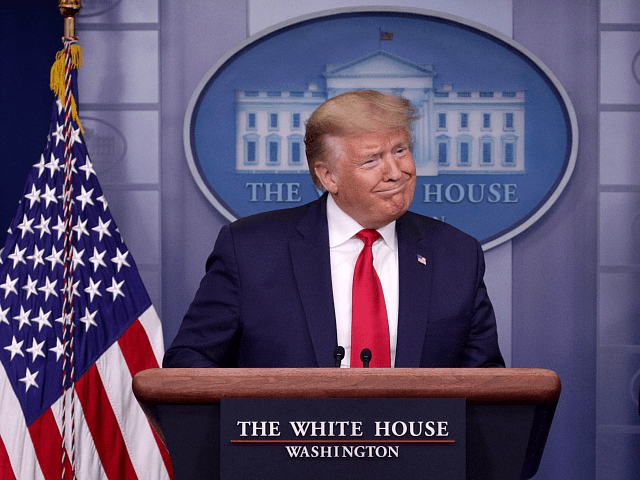Britain’s National Health Service (NHS) is to trial anti-malaria drugs dubbed “Trump pills” by some supporters of the U.S. President after he touted them as a possible “gamechanger” in the fight against coronavirus.
President Trump tweeted that “HYDROXYCHLOROQUINE & AZITHROMYCIN, taken together, have a real chance to be one of the biggest game changers in the history of medicine” after anecdotal information suggested they may improve coronavirus patients’ prospects.
This drew the ire of much of the mainstream media and sections of the medical establishment, as the drugs’ efficacy has not been definitively proven in clinical trials, with the evidence for its usefulness, such as it is, coming largely from China, controversial French studies, and individual clinicians such as Dr Anthony Cardillo of Los Angeles and Dr Vladimir Zelenko of New York — who had claimed a 100 per cent success rate using hydroxychloroquine and azithromycin in combination with zinc sulfate.
President Trump has taken a decidedly anti-bureaucratic approach to whether or not clinicians should experiment with such treatments, saying: “What do you have to lose? Take it.”
“[W]e don’t have time to go and say, ‘Gee, let’s take a couple of years and test it out, and let’s go and test with the test tubes and the laboratories,’” the President said in response to critics highlighting the lack of definitive proof that the drugs work — an endorsement which has caused prominent supporters such as cartoonist and commentator Scott Adams to dub them “Trump pills”.
In the United Kingdom, meanwhile, a correspondent to The Telegraph has previously criticised Chris Whitty, the Chief Medical Officer for England, for allegedly having “banned doctors from treating Covid-19 with anything other than paracetamol and, in severe cases, oxygen”.
“Professor Whitty’s position is that British doctors may not use therapies that have not undergone double blind controlled trials here,” claimed the correspondent, one Dr Steven R Hopkins.
“This could condemn many thousands to avoidable death through a failure to recognise that different rules should apply when patients are dying at such a rate… hydroxychloroquine is well-known, with a well-understood side-effect profile. It is safe,” he suggested.
Now the National Health Service (NHS) does appear to be conceding that hydroxychloroquine may have some merit, with St Bartholomew’s Hospital, known colloquially as “Barts”, and the Royal Devon and Exeter Hospital trialling its use in some patients.
“Barts Health NHS Trust has convened an expert clinical group to consider novel medications in the treatment of Covid-19,” a spokesman told The Telegraph.
“The evidence base is limited for all such drugs and we are actively recruiting patients to major clinical trials that have been prioritised by the Department of Health and Social Care.
“These include hydroxychloroquine, kaletra, steroids, and Remdesivir,” he continued, adding that for “a small number of carefully selected patients, we have recommended some novel therapies for immediate use, including immunomodulatory drugs such as Tocilizumab.”
The NHS was also reported to be preparing to approve convalescent plasma — in layman’s terms, blood from recovered coronavirus patients containing possibly therapeutic antibodies for the disease — as a treatment option in March.
However, while doctors in the United States, South Korea, and Russia are already carrying out transfusions, British authorities such as the National Blood Service have given little indication that they are tracing recovered patients in order to source plasma in a systematic manner.

COMMENTS
Please let us know if you're having issues with commenting.